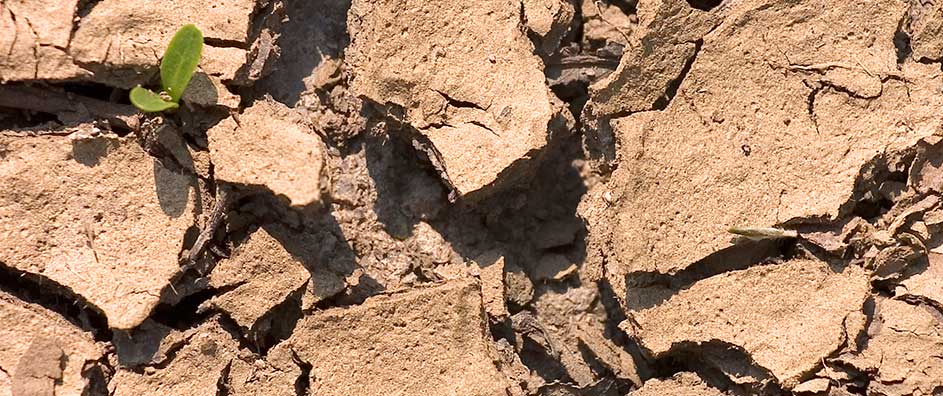Throughout history, the scourge of famine, drought, and hunger has plagued humanity, leaving a trail of suffering and despair. Yet, the Bahá’í teachings present a profound perspective that not only contextualizes these crises but also invites individuals to contemplate their deeper, mystical implications. This discourse aims to explore the intersections between natural calamities and spiritual growth, highlighting the potential for transformation in consciousness that arises from such adversities.
The Bahá’í Faith posits that calamities serve a dual purpose: they are both a test and a means of unfolding humanity’s spiritual capacities. In understanding this dynamic, it becomes evident that the pervasive nature of famine and drought can catalyze a significant shift in perspective, urging individuals to reassess their relationship with both the material and spiritual worlds.
First, it is essential to recognize the interconnectedness of all peoples and their shared propensity for suffering in the face of natural disasters. The teachings stress that calamities are not mere occurrences confined to geographic boundaries; rather, they embody a universal challenge that compels humanity to reaffirm its unity. In this respect, one might consider how the experience of famine can foster empathy and solidarity among disparate cultures. When individuals witness the plight of others, it inspires a collective response that transcends cultural and national boundaries—a quintessential Bahá’í principle.
Moreover, the emotional and spiritual ramifications of hunger extend beyond mere physical deprivation. Famine serves to illuminate the stark realities of materialism, encouraging individuals to seek deeper fulfillment beyond the superficial trappings of worldly possessions. The mystical implications emerge when one contemplates that through this suffering, individuals might attain a heightened awareness of their reliance on divine providence. It is posited that famine encourages a spiritual awakening, prompting individuals to cultivate a deeper appreciation for gratitude, resilience, and hope in the face of adversity.
One intriguing aspect of the Bahá’í teachings is the correlation drawn between physical sustenance and spiritual nourishment. The phenomenon of hunger is not limited to the bodily realm; spiritual famine—a state of yearning for meaning and purpose—often accompanies it. Engaging with this duality invites individuals to consider how spiritual practices can mitigate the effects of physical hunger. For instance, acts of service and community engagement not only help alleviate material suffering but also nourish the soul.
Furthermore, reflections on drought and famine can lead to profound insights about environmental stewardship. As humanity grapples with increasing climate change challenges, Bahá’í teachings advocate for responsible action toward the environment, illustrating that the health of the planet directly impacts human well-being. A drought—an emblematic representation of ecological imbalance—serves as a clarion call for a reevaluation of our consumption patterns, urging a collective movement toward sustainability and harmonious coexistence with nature.
In contemplating the mystical implications of famine, one cannot overlook the societal structures that exacerbate such crises. Bahá’í teachings emphasize justice and equity as foundational elements in mitigating the impact of hunger. Through the lens of these teachings, it becomes clear that systemic inequalities manifest in the distribution of resources—particularly food—are inextricably linked to the suffering experienced during famines. Harnessing this awareness can provoke a shift in consciousness, motivating individuals and communities to advocate for social reforms that promote equity and accessibility.
Moreover, the Bahá’í response to these issues is not merely reactive but proactive, emphasizing the significance of education and empowerment. By fostering a culture of learning and strengthening communities, individuals are better equipped to confront the challenges posed by famine and drought. Education serves as the bedrock upon which societies can build resilience and innovation, effectively rendering them less susceptible to the vicissitudes of nature.
This engagement with education and activism fosters a transformative dialogue—one that resonates with the core Bahá’í belief that humanity possesses the capacity for regeneration. In this vein, the mystical implications of famine extend into the realm of collective consciousness. It matters not merely how individuals respond to crises but how communities and societies evolve through these experiences. The crucible of adversity can induce a profound transformation, leading to a unified front that embodies unity, compassion, and shared responsibility.
Lastly, the teachings elicit a contemplative perspective on the impermanence of life. The fleeting nature of material existence and the inevitable trials therein invite contemplation on the eternal truths that underpin human existence. This recognition can cultivate a deeper sense of spirituality—one that embraces both suffering and joy as integral components of the human experience. In this dance of duality, there lies an opportunity for growth and a richer understanding of the divine nature of humanity.
As we reflect on the mystical implications of famine, drought, and hunger, we are invited to engage in a holistic introspection that aligns with the Bahá’í vision of a unified and resilient global community. Such contemplation promises not only a shift in perspective but also the cultivation of curiosity about the myriad ways in which adversity can lead to profound change. Embracing these teachings inspires a commitment to justice, compassion, and collective responsibility, illuminating a path towards a more harmonious and equitable world.
